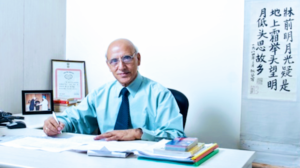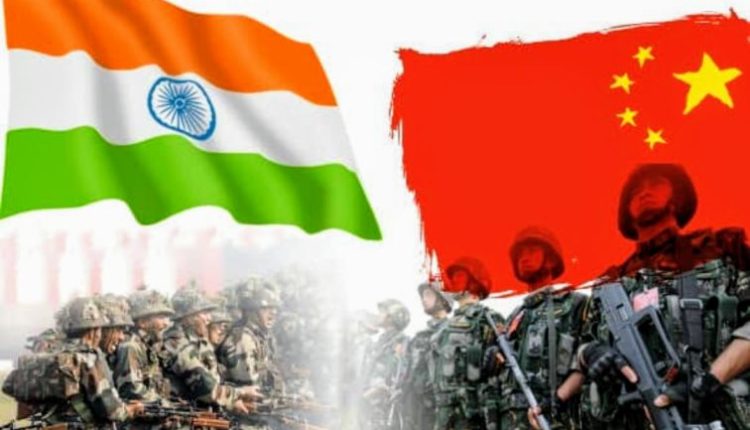Sharp Policy differences within ruling Communist Party of China: Implications for India
Currently, China is putting up a united front to ward off global outrage but top-level changes in the leadership in the future cannot be ruled out and some top heads will roll down. It remains to be seen how long the PLA, continues to support hardliner’s faction headed by President Xi.
By Prof Ashok Tiku
While nations are busy with the pandemic COVID-19 blame game, contemplating and advocating independent inquiry, China has been seen mounting pressure overtly and covertly on countries including India advocating transparent independent inquiry into the spread of this pandemic. However, what has not received attention is that within china itself the party’s top leadership is also under pressure for advocating wrong policies like “Neo nationalism”, “aggressive diplomacy” and other wrong decisions that have plummeted China’s prestige globally.
The leadership appears to be using Neo -nationalism, “Sovereignty, stability, and security” banner, displaying military might, unwarranted border conflicts to deflect public attention from the pandemic, to save their position in the party.
The present Government is a coalition government of various factions within CCP the largest being the Army on whose support the present leadership including President XI Jinping depends upon to save his position. In the absence of a powerful leader like Mao, Deng, PLA has turned out to be the sole kingmaker making everyone realize that power flows through the barrel of the gun.
The policy disagreement within the CCP openly aired and supported by senior echelons in the party can be noticed in the Chinese language official media and is reminiscent of power struggle during gang of four factions in the 70s though admittedly still at a nascent stage but likely to get sharper as the preparations begin for selecting people to powerful positions in the next Part Congress.
 What supports this argument and lends credence to these dissenting voices in the open defiance by reputed academicians from the top three Universities, Ren Da (Peoples University), Qing Hua (Tsing Hua) both in Beijing and Nanjing University. It may be worth recalling that after the criticism of Chinese govt policy on China-US trade war in 2018 by the academicians, the government accused them of speaking against the party line and approved stringent laws in Jan 2019 to reform the university charter preventing criticism of state policy. Subsequently, the university charter was amended to remove references to academic freedom and espouse loyalty to the party.
What supports this argument and lends credence to these dissenting voices in the open defiance by reputed academicians from the top three Universities, Ren Da (Peoples University), Qing Hua (Tsing Hua) both in Beijing and Nanjing University. It may be worth recalling that after the criticism of Chinese govt policy on China-US trade war in 2018 by the academicians, the government accused them of speaking against the party line and approved stringent laws in Jan 2019 to reform the university charter preventing criticism of state policy. Subsequently, the university charter was amended to remove references to academic freedom and espouse loyalty to the party.
The rare internal criticism noticed recently (before the recent NPC session) was by several top international relations experts who have questioned the execution of current China’s foreign policy. Prof Dr. Shi Yinhong a long time advisor to state council since 2011, chairman of the academic committee of the school of international studies, Ren da university stated in a seminar at Nanjing university shared officially by Ren da university- “the bellicose diplomacy has not only failed in its objective to promote the superiority of Chinese political system, project China as a world leader combating and contributing to the global health crisis, but has achieved the opposite”. He received support from Prof Zhu Feng dean of international relations, Nan Jing University.
Even the well-known hawk Prof Yan Xuetong from the most reputed Tsing Hua (Qing Hua)university Beijing (included in the group of top 100 international relations experts world over) and advisor to national Security council, known earlier for advocating muscle diplomacy, reducing the power gap with the US in 2020 due to lack of global leadership, has now called for “more rationality” and warned against “nationalistic thought driving china’s foreign policy”. Several veteran Chinese diplomats and academicians have also supported such views.
Also read: Galwan not a Chinese word; Not found in ‘Ci Hai’, the treasure house of Chinese words
Another reputed expert Prof Dr. Niu Xinchun Director in China institute of contemporary international relations (CICIR), China’s largest, oldest, and the most influential civilian research institute for international relations affiliated with China’s Ministry of State Security and overseen directly by the Party central committee and advocator of a greater proactive international role for China, while participating in a debate on “whether China has become a superpower and should take relevant responsibilities” agreed with the consensus that “china’s strategic goal should continue to be fostering a favorable environment for its economic development and increase its international influence”.
The participants in the debate warned against the surge of ‘neo-nationalism’ and “irrational populism” and agreed that “China needs to readjust its strategic concepts and should be a participant rather than a designer, and formulate ‘specific approach’ to achieve this goal”
Another acclaimed Chinese writer Fang Fang (pen name of Wang Fang) in her 60 days long online daily diary (Feb 18), a resident of Wuhan, has also criticized the left faction-“Those ultra-leftists in China are responsible for causing irreparable harm to the nation and people. All they want to do is to return to the days of the Cultural Revolution and reverse all reform era policies. They behave like a pack of thugs, launching wave after wave of attacks. They are able to publish these ridiculous things online and repeatedly turn the truth upside down, yet their posts never get censored or deleted and no one ever stops their flagrant actions”
 What lends credence to these dissecting voices from top reputed institutions, central university academicians is the fact that despite the more stringent laws introduced in early 2019 prohibiting speaking against the party line, these reputed academicians have dared to criticize the government. It is unlikely that they would have aired their criticism without the backing of higher echelons in the party and till date has escaped any censure or repercussions. The criticism is directly aimed at hard-liners faction lead by President Xi Jinping.
What lends credence to these dissecting voices from top reputed institutions, central university academicians is the fact that despite the more stringent laws introduced in early 2019 prohibiting speaking against the party line, these reputed academicians have dared to criticize the government. It is unlikely that they would have aired their criticism without the backing of higher echelons in the party and till date has escaped any censure or repercussions. The criticism is directly aimed at hard-liners faction lead by President Xi Jinping.
This issue must have been thoroughly discussed before and at the recent second session of 13th NPC and the hardliners appear to have taken a back seat. The softening of the attitude was evident from the conciliatory remarks made by Chinese foreign minister Wang yi at the post NPC press conference as well as china’s ambassador in Delhi emphasizing harmonious coexistence. “Correctly view differences and never let the differences overshadow the overall situation of bilateral cooperation”.
The vocal diplomatic warriors have suddenly gone silent. Evidently both the factions are pursuing their goals and it remains to be seen how the factional struggle unfolds. President Xi’s recent message to PLA to be prepared for the worst scenario, muscle-flexing in the South China Sea, India -China-LAC border standoff, ordering the evacuation of Chinese citizens from India, opposition to Taiwan’s observer status, Hongkong security law all appear to be aimed at whipping up nationalist feelings to save his position and to deflect global attention from COVID-19 cover-up that has plummeted China’s prestige globally.
Currently, China is putting up a united front to ward off global outrage but top-level changes in the leadership in the future cannot be ruled out and some top heads will roll down. It remains to be seen how long the PLA, the deciding force in this power struggle continues to support hardliner’s faction headed by President Xi.
Implications for India
Now as China has a credibility problem that has plummeted China’s place as the presumptive supper power, its focus will henceforth be on ‘Sovereignty and stability’ assigning PLA a greater role.
1) It is likely that PLA will continue to use this opportunity to hard peddle and demonstrate dominance both in the South China Sea and on the only un-demarcated China-India boundary, point out India’s inadequacies like crashing economy, struggling with pandemic and inadequate national security.
2) PLA’s action at Galwan valley, Pangong lake appears to be a bargaining posture for building the new road that links Tibet with Gilgit – Baltistan by stalling the construction of the winding 255kms Darbuk-Shyok-Daulat Beg Olde road that gives Indian army easy access to the last military post south of the dominating Karakoram pass.
3) Currently, China and Pakistan are linked by the Karakoram highway via the Khunjerabad pass, but now china wants to link Tibet with POK’s Gilgit Baltistan to provide a shorter and all-weather road to safeguard its economic interests and investments in the area.
4) More important to lend tactical support to Pakistan’s move to declare Gilgit-Baltistan as a province of Pakistan in the coming few months (Committee already formed by PAK government to guide and advise on the legal aspect) and pressurize and prevent India from taking any aggressive posture on this issue.
5) Showcase its strength and dominance on the India-China border indicating it can enter or leave the area at will.
To sum up, India should closely watch the dynamics of evolving situation (both internal and external) in China, be prepared for prolonged tension on the border, strengthen border defense infrastructure to pre-empt and prevent any joint hostile action by Pakistan and China. India must empathetically make it clear at the border talks that this policy of “flexible lines” adopted by PLA to nibble at the Indian Territory, opening another link road connecting POK with Tibet, enter and withdraw at will, is neither acceptable nor conducive to promoting bilateral relations. The bottom line to start of any meaningful talks would be restoring the status quo ante along the LAC.
India should be careful about China’s strategy advocated By Mr. Chou Enlai “Encroach, Delay, Create pressure and Normalise encroachment in due course. India should stick to its approach advocated so beautifully by Indian PM at LEH approach –“China has to decide whether it wants to restore status quo ante or risk an escalation at the border. India is prepared for both.” The de-escalation and withdrawal of troops at the border announced by China and India (July 6th) should be monitored by all verifiable means and should not be a repetition of 1962 –Entry and Exit at will without any consequences. The bottom line should be quick status quo ante and not de-escalation leading to a new LAC.
Also read: Galwan not a Chinese word; Not found in ‘Ci Hai’, the treasure house of Chinese words
About the author:

Prof. Ashok Tiku, Former HOD, Amity School of Languages, Amity University Gurgaon is an authority on Chinese affairs with over 45 years of experience as an analyst. Born in Srinagar, Prof. Tiku did his Masters from Peking University, Beijing, and lived in China for 10 years.Mob-9811686042



